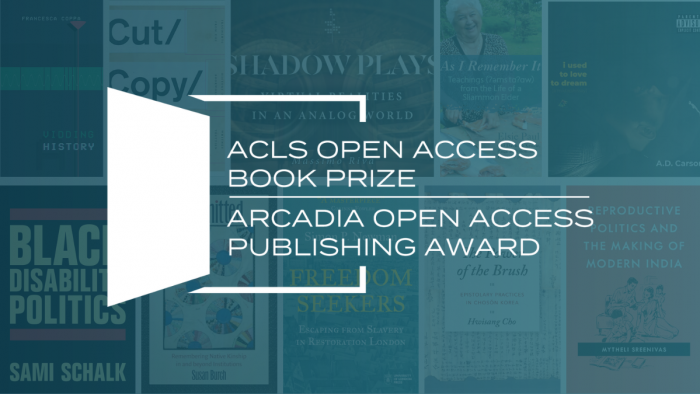

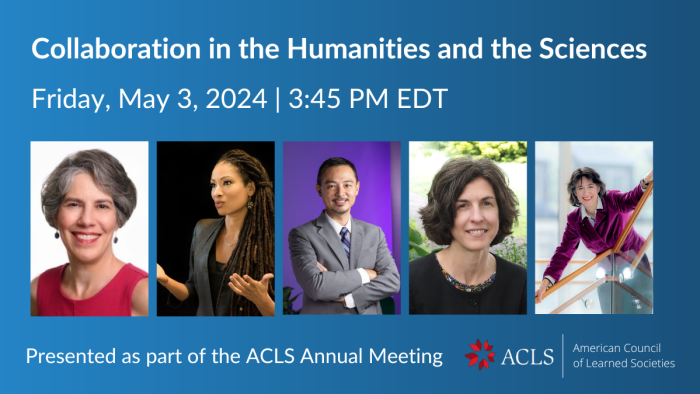
Panelists Ruha Benjamin, S. Matthew Liao, Wendy Parker, and Conevery Bolton Valenčius talk with Heather Hewett about collaborations between the sciences and humanities. The event will be livestreamed as part of the ACLS Annual Meeting, please register below to attend virtually.
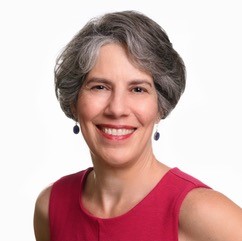
Heather Hewett, ACLS Program Officer for Higher Education Initiatives
Heather Hewett is a Program Officer for Higher Education Initiatives, where she is working on projects that advance institutional and system-wide change grounded in justice, equity, and humanistic knowledge. Prior to joining ACLS, she served as chair and associate professor of Women’s, Gender, and Sexuality Studies and affiliate of the English Department at the State University of New York at New Paltz (currently on leave). She holds a PhD and an MA in English, and a Graduate Certificate in African Studies, from the University of Wisconsin-Madison. Her BA in English is from Yale University.
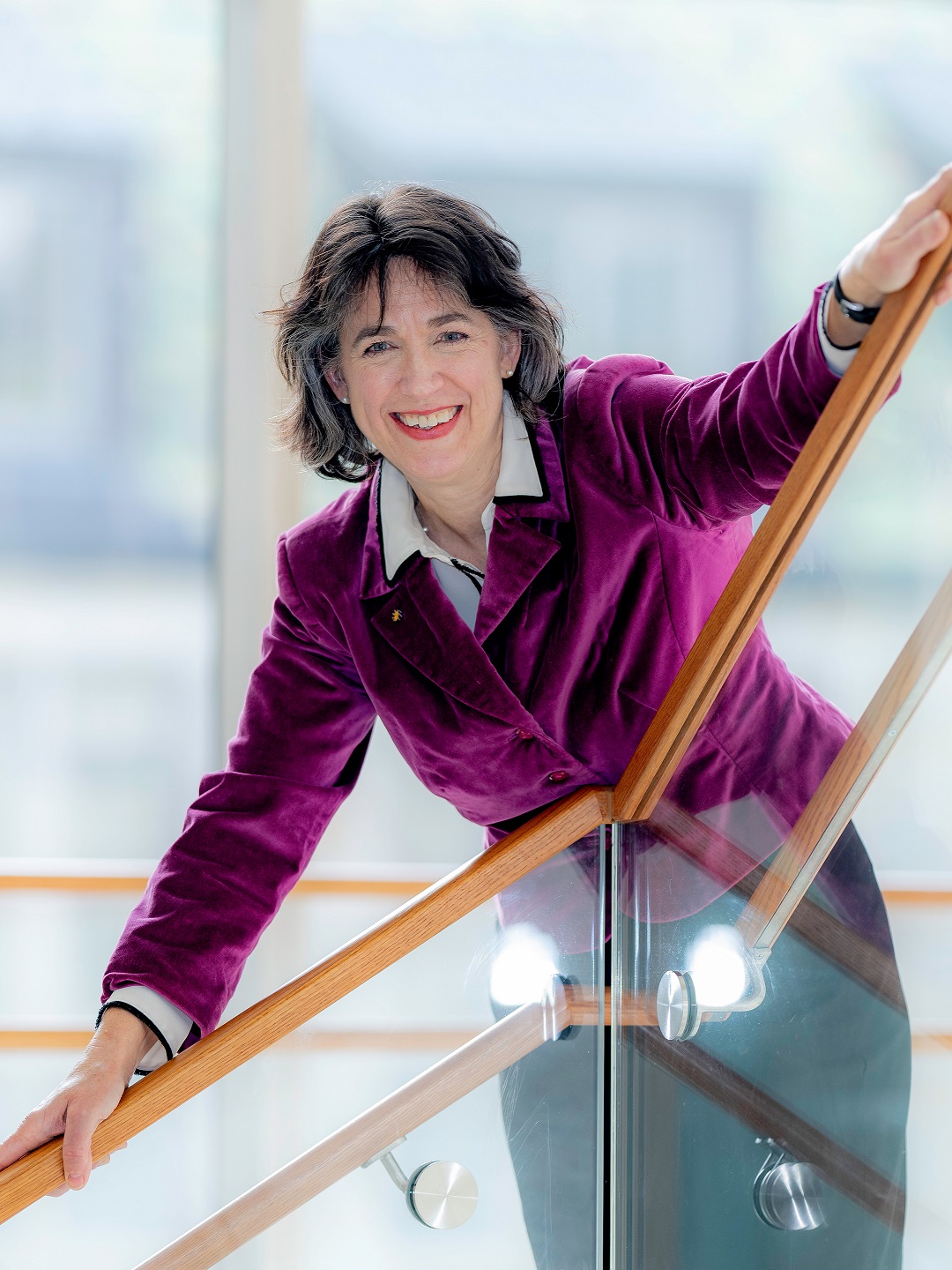
Conevery Bolton Valenčius
Conevery Bolton Valenčius teaches and writes about American environments and peoples at Boston College. Valenčius is currently working on a National Endowment for the Humanities Collaborative Research Grant to finish a co-authored book about the shale boom and its surprising earthquakes. She directs the Neponset River Lab, researching the history of a local, historically industrialized river that has been important to people of the Massachusetts Bay from before European contact to the recent Superfund designation by the EPA. She is part of a pilot project on community-engaged seismology funded by the National Science Foundation and is engaged in several interdisciplinary grant proposals about energy systems, climate change, and New England waterways. Valenčius’s 2013 book, The Lost History of the New Madrid Earthquakes, explored the impact and continuing scientific importance of 19th-century quakes in the Mississippi Valley. Her first book, The Health of the Country: How American Settlers Understood Themselves and Their Land, won the 2003 George Perkins Marsh Prize from the American Society for Environmental History. Her work has been supported by fellowships from the Dibner Institute for the History of Science and Technology, the National Endowment for the Humanities, the Fund for Investigative Journalism, and the Radcliffe Institute for Advanced Study. In 2022 Valenčius was named a Fellow of the American Association for the Advancement of Science.
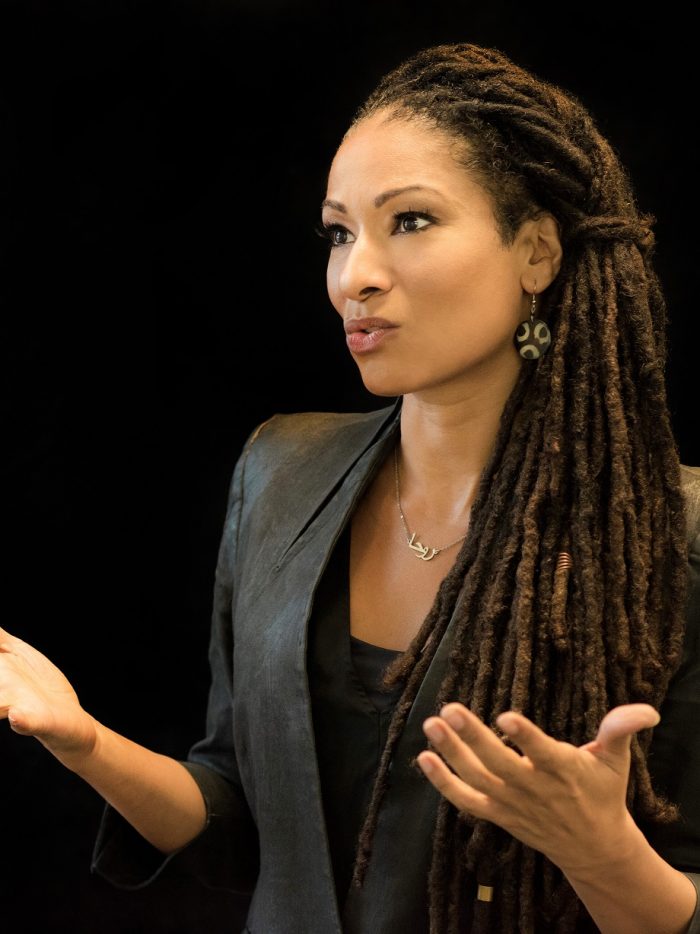
Ruha Benjamin
Ruha Benjamin is Alexander Stewart 1886 Professor of African American Studies at Princeton University, founding director of the Ida B. Wells Just Data Lab, and award-winning author of Race After Technology: Abolitionist Tools for the New Jim Code (2019), Viral Justice: How We Grow the World We Want (2022), and Imagination: A Manifesto (2024). Ruha earned a BA in Sociology and Anthropology from Spelman College, MA and PhD in Sociology from UC Berkeley, and postdoctoral fellowships at UCLA’s Institute for Society & Genetics and Harvard’s Science, Technology & Society Program. She is also the recipient fellowships and awards from the American Council of Learned Societies, National Science Foundation, Marguerite Casey Foundation Freedom Scholar Award, and President’s Award for Distinguished Teaching at Princeton.

S. Matthew Liao
S. Matthew Liao is Arthur Zitrin Chair of Bioethics, Director of the Center for Bioethics, Professor of Global Public Health, and Affiliated Professor in the Department of Philosophy at New York University. He is the author or editor of The Right to Be Loved (Oxford University Press); Ethics of Artificial Intelligence (Oxford University Press); Moral Brains: The Neuroscience of Morality (Oxford University Press); The Philosophical Foundations of Human Rights (Oxford University Press); Current Controversies in Bioethics (Routledge), and over 70 articles in philosophy and bioethics. He has given TED and TEDx talks in New York and CERN, Switzerland, and he has been featured in the New York Times, The Atlantic, The Guardian, the BBC, Harper’s Magazine, Sydney Morning Herald, Scientific American and other media outlets. He is the Editor-in-Chief for the Journal of Moral Philosophy, a peer-reviewed international journal of moral, political and legal philosophy.
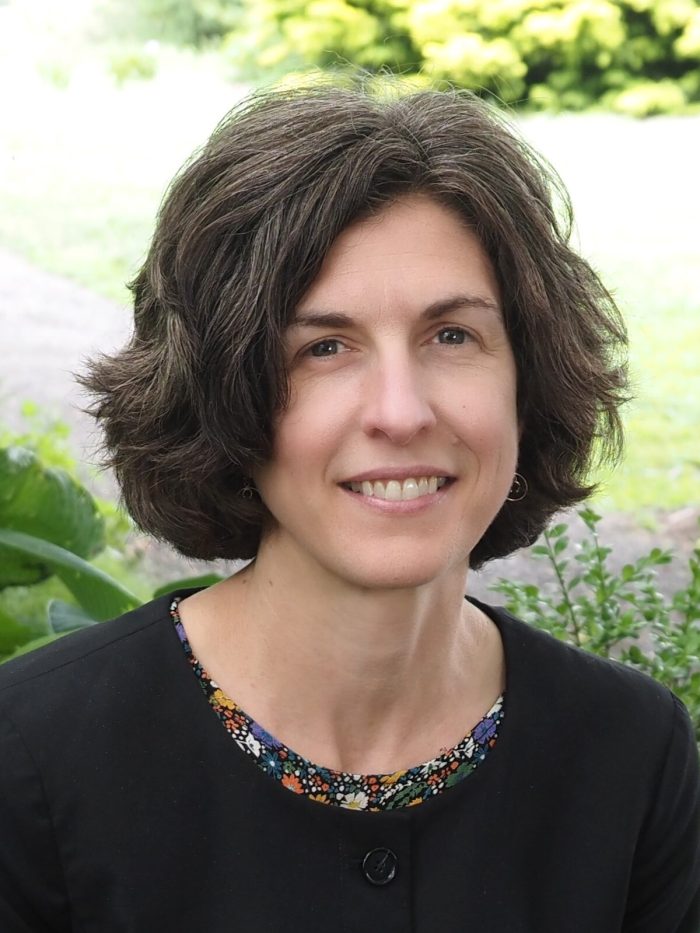
Wendy Parker
Wendy Parker is Professor of Philosophy at Virginia Tech. She earned her PhD in History & Philosophy of Science from the University of Pittsburgh. Her research is in the area of philosophy of science, addressing questions about scientific modeling and computer simulation, scientific evidence, and values in science, with a particular focus on climate science. She has published in a wide range of philosophical and scientific journals and recently was a contributing author to the Sixth Assessment Report of the Intergovernmental Panel on Climate Change (IPCC). Since 2017, she has been Co-Editor-in-Chief of The British Journal for the Philosophy of Science.